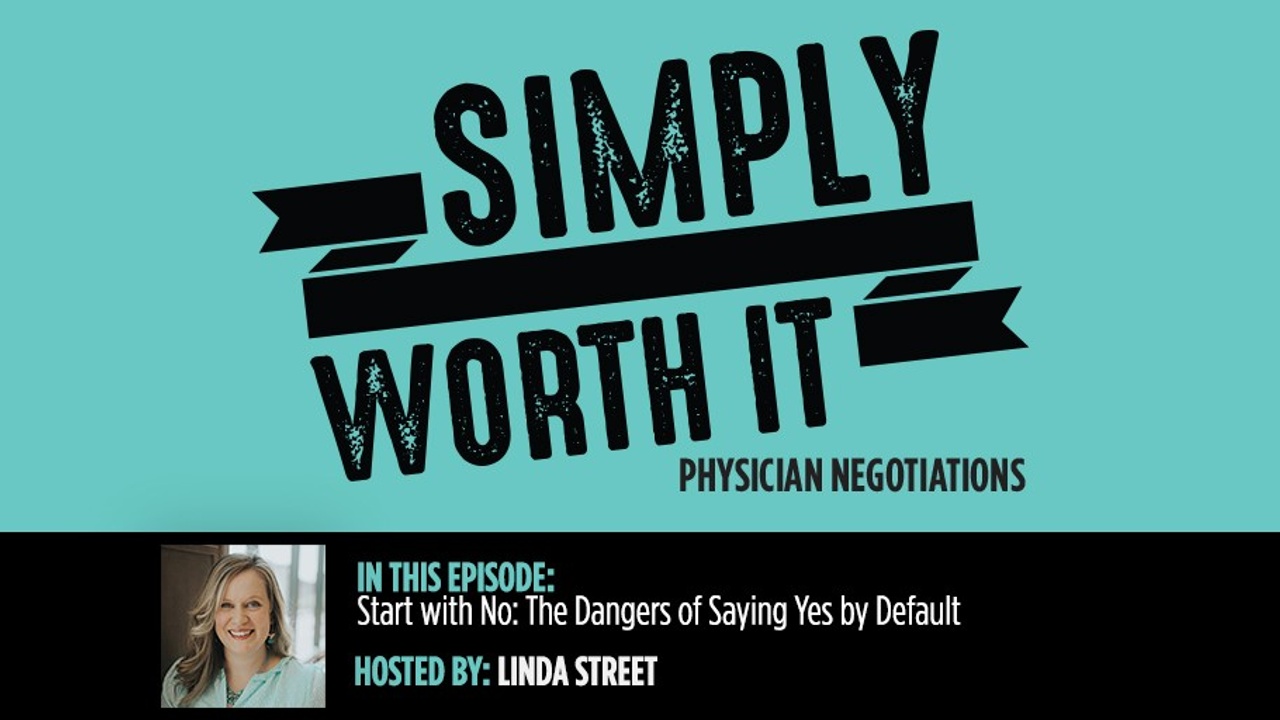Start with No: The Dangers of Saying Yes by Default

Saying yes to everything is a seemingly harmless act and the default response we’ve been conditioned to give, but does it actually serve us? When I look at this issue through the lens of physicians in the workforce, I can see the negative effects.
Most of us struggle to say no to things that don’t align with us and this is evident in the alarming levels of physician burnout we’re seeing.
As we become more deliberate about going after what serves us, we have to really get acquainted with the word “no”. It has to become our default answer.
What questions do we need to ask ourselves before we say yes to anything? How do we honestly and deliberately evaluate our opportunity cost?
In this episode, I talk about how to overcome the struggle with saying no, and how to carry that into our negotiations.

Three Things You’ll Learn In This Episode
- Why saying yes by default is a flawed approach
Most of us have been conditioned to have a default “yes” answer to everything we’re asked to do, but it should be the other way around - a default “no”. This gives us the space to really evaluate if something meets the criteria of our priorities. - The negative effects of committing to the wrong things
There is definitely a connection between burnout and saying yes to everything. When we constantly commit to things that don’t align with our priorities, we go pull ourselves away from the things that matter. Before you say yes to something, factor those things in, whether it’s your family, your hobbies, or your time to rest. - How to evaluate the opportunity cost
Our time is finite, and any time we say yes to something, we’re saying no to and taking our time away from something else. Evaluating the opportunity cost before we commit to something is a critical step to make sure it’s aligned with our overall goals and priorities.

